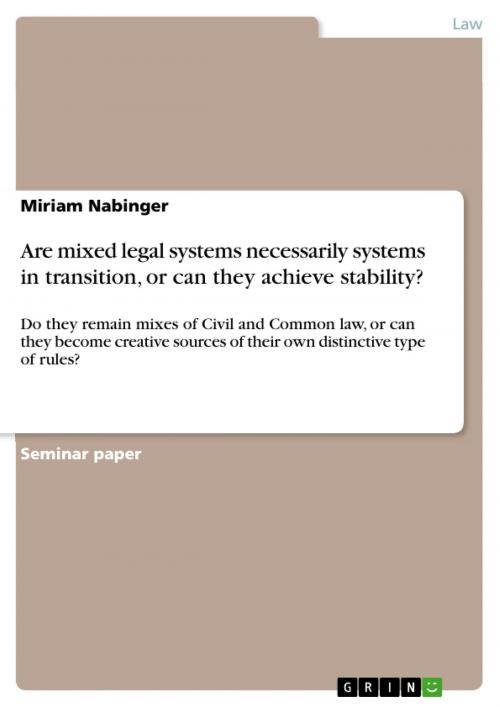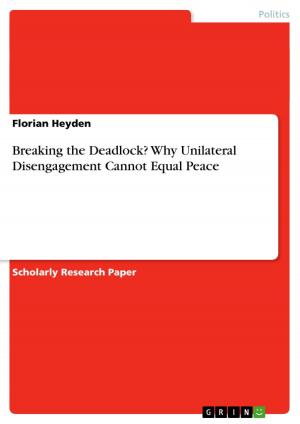Are mixed legal systems necessarily systems in transition, or can they achieve stability?
Do they remain mixes of Civil and Common law, or can they become creative sources of their own distinctive type of rules?
Nonfiction, Reference & Language, Law, International| Author: | Miriam Nabinger | ISBN: | 9783638011969 |
| Publisher: | GRIN Publishing | Publication: | February 26, 2008 |
| Imprint: | GRIN Publishing | Language: | English |
| Author: | Miriam Nabinger |
| ISBN: | 9783638011969 |
| Publisher: | GRIN Publishing |
| Publication: | February 26, 2008 |
| Imprint: | GRIN Publishing |
| Language: | English |
Seminar paper from the year 2006 in the subject Law - Comparative Legal Systems, Comparative Law, grade: 72%, Stellenbosch Universitiy (University of Stellenbosch, South Africa - Department for Private Law), course: Comparative Private Law, 27 entries in the bibliography, language: English, abstract: This paper is aimed at presenting why, in the author's opinion, mixed legal systems are not likely to be in a transitory stage in either the Civil or Common law direction and will not end up as one of the two 'classical' legal ways. Rather, they will extend their borrowing and transplanting effort and strive for the 'perfect rule' among the available rules in existing Civil law just as all Common law systems do if they do not in a specific area come up with a striking and creative new solution. This awards them a great potential to serve as a role-model when harmonization and unification of law is on the agenda or when the two classical eurocentric legal families have reached stagnation and need inspiration.
Seminar paper from the year 2006 in the subject Law - Comparative Legal Systems, Comparative Law, grade: 72%, Stellenbosch Universitiy (University of Stellenbosch, South Africa - Department for Private Law), course: Comparative Private Law, 27 entries in the bibliography, language: English, abstract: This paper is aimed at presenting why, in the author's opinion, mixed legal systems are not likely to be in a transitory stage in either the Civil or Common law direction and will not end up as one of the two 'classical' legal ways. Rather, they will extend their borrowing and transplanting effort and strive for the 'perfect rule' among the available rules in existing Civil law just as all Common law systems do if they do not in a specific area come up with a striking and creative new solution. This awards them a great potential to serve as a role-model when harmonization and unification of law is on the agenda or when the two classical eurocentric legal families have reached stagnation and need inspiration.















